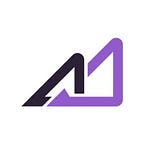What is a DAO?
A Decentralized Autonomous Organization (DAO) is a system of hard-coded rules that define which actions a decentralized organization will take. A DAO refers to a particular kind of organization that, unlike conventional companies, is based on open source code and governed by its community. Unlike conventional companies, a DAO refers to any kind of organization that can be based on open source code. Operated entirely by its community, the underlying structure and working mechanisms of a DAO never operate hierarchically or bureaucratically.
The first DAO was inspired by the decentralization of cryptocurrencies, when a group of developers came up with the idea for the first decentralized autonomous organization in 2016. The developers of the DAO believed they could eliminate human error or manipulation of investor funds by placing the decision-making power into the hands of an automated system while crowdsourcing the process. Fueled by Ether, the DAO was designed to allow users to anonymously send money from and to anywhere in the world. The DAO was organized to provide all participating users tokens, giving members the voting rights to contribute to the governance of the DAO.
A DAO is an organization represented by rules encoded as a transparent computer program, controlled by the organization’s members, and not influenced by a central institution. As the rules are embedded into the code, DAOs need the following elements to be fully functional: a set of rules to operate the organization written as smart contracts, a funding mechanism using tokens that the organization can spend to reward members for completing certain activities, a voting mechanism for establishing the rules governing the organization, and finally, there must be a secure structure that allows users to configure the organization as they see fit.
A DAO’s financial transactions and rules are recorded on a blockchain, eliminating the need to involve a third party in a financial transaction and simplifying those transactions using smart contracts. The rules governing a DAO are written as a smart contract. No one can edit the rules without being noticed because DAOs are transparent and public. DAOs envision a collective organization owned and managed by their members, all of them having a voice. Many analysts and industry insiders affirm that this type of organization is becoming more prominent, potentially soon replacing some traditional companies and organizations.
Lately, a number of DAOs have started to grab the attention of more conventional investors, including billionaire Mark Cuban, who called them “the ultimate combination of capitalism and progressivism.” Venture capital firm Andreessen Horowitz has also led multimillion-dollar fundraising rounds for both individual DAOs and companies that support DAO creation.
Here are a few examples of well-known DAOs:
- The PleasrDAO collects various NFTs and invests in other assets.
- The HerStory DAO collects and funds projects by Black women and non-binary artists.
- The Komorebi Collective DAO funds women and non-binary crypto founders.
- The Friends with Benefits DAO is an exclusive social club which you pay to enter.
- The MetaCartel Venture DAO is a for-profit business that invests in early stage decentralized applications.
